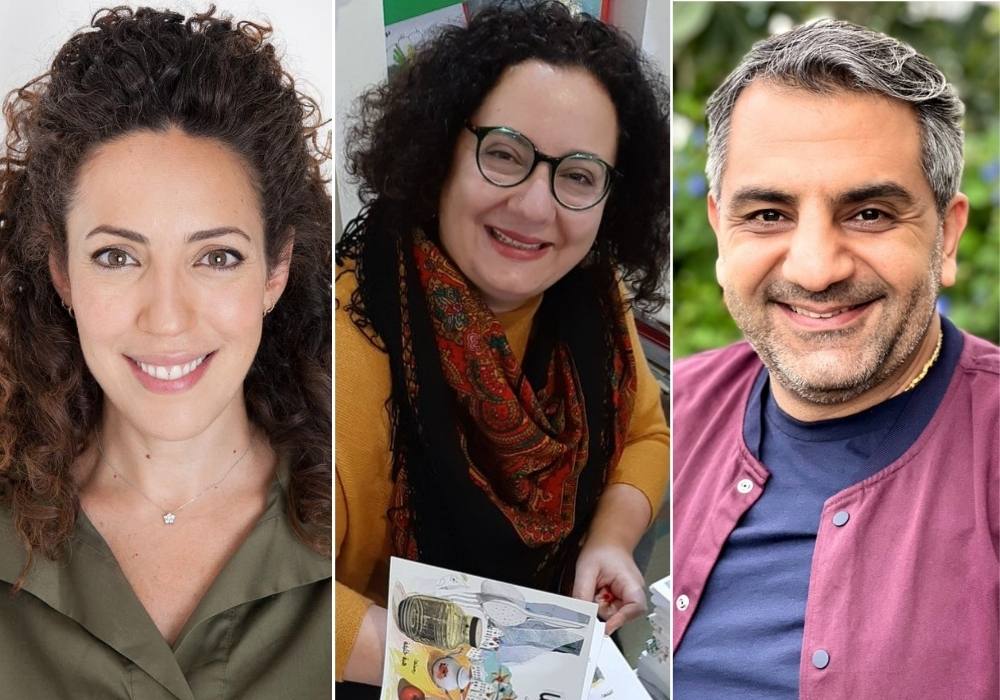The Abu Dhabi International Book Fair (April 30–May 5) has just wrapped up its seventh year. As in the past, the fair was an enormous undertaking, with school field trips, dozens of author events and book signings, cooking demonstrations, book sales, professional seminars, publisher-to-publisher matchmaking sessions, and more. This vastness was sometimes confusing, and the lack of a complete program forced attendees to leaf through a half-dozen separate schedules for information about events. At times, the fair seemed balanced on the head of a pin, teetering this way and that, as organizers rushed from one side of the ADNEC building to the other, trying to keep all the events in smooth motion.
This is the second year that the fair has been fully managed by the Abu Dhabi Tourism and Cultural Authority, rather than by the fair's Frankfurt partners. This year, even more than last, there was a definite feeling that fair operations were in transition, with fewer people doing more work and fewer international participants.
Yet, as in the past, there was still an embarrassment of brilliant authors and artists. The Abu Dhabi fair has done good work in establishing itself as a meeting point not only for Arab authors and illustrators living in the region, but for those living in London (Anwar Hamed), Paris (Inaam Kachachi), Sweden (Ghayath al-Madhoun, Saad Hajo), Iceland (Mazen Maarouf), Turkey (Gulnar Hajo), and beyond. The fair also works to bring in non-Arab authors of global significance.
Sweden was this year's “guest of honor,” and the Scandinavian nation promoted its authors and culture energetically. Events included a well-attended but not-very-illuminating chat with Swedish Academy member Kjell Espmark. Indian author Sampurna Chatterji pointedly asked Espmark if the proliferation of literary works in different Indian languages had made it difficult for the committee to select Nobelists from the subcontinent, or whether Indian writers “just weren't up to the mark.” Espmark side-stepped the question, saying that the committee could call in translations when they wished.
The fair continues to assume greater importance in the Arab publishing sphere, as the older Cairo International Book Fair recedes as a space of doing regional and international business. Last fall, commentator Sultan Sooud al-Qassemi wrote that Gulf cities are the new capitals of Arab culture. It is no longer “Cairo writes, Beirut publishes, and Baghdad reads,” he said. Instead, a combination of Gulf cities is surging to the forefront.
Although Abu Dhabi has become a meeting point, a Gulfward shift of the book industry itself was still not in evidence. It’s true that there have been serious, interesting efforts to support Emirati writing (such as the “Made in UAE” project, co-sponsored by the UAEBBY and the Goethe-Institut, which helped launch sci-fi writer Noura al-Noman). There were also a half-dozen or more new Emirati publishing companies, as well as reports of a marked uptick in young Emirati readers. Yet the fair didn’t do a bang-up job of promoting Emirati writers, particularly those working in less-traditional genres, such as al-Noman or emerging middle-grade speculative-fiction author Shaima’ al-Marzouki.
In general, the fair still feels as though it were at the very beginning of its life, not yet decided about where it wants to go. What sort of focus should it have? How can it involve the public? And what kind of literary culture does it want to foster? This uncertainty was reflected in the reduced staffing and disorganization of some events. One host of a poetry event arrived without knowing who the poets were, and introduced one as a novelist. As the event continued, she was constantly pointing to her watch, as though she were managing a presidential debate. At a short-story event, another presenter read parts of an article by short-story writer Hisham Bustani as though she had written it herself. At some points, it was difficult for book-lovers to find their way to the events, and celebrated authors spoke to empty rows of chairs.
Novelist Youssef Rakha—who has two books forthcoming in English translation this fall—referred to the giant ADNEC building as a spaceship. This Battlestar Galactica feeling was intensified by one's inability to leave the book-fair premises and walk about in the nearby city. The ADNEC felt like a futuristic world onto itself, near the rest of the city, but cut off from a real connection to it.
This disconnect is demonstrated by what happened to German author Jörg Albrecht, who was supposed to give a talk at the fair about “The Panorama of German Literature.” Albrecht left his hotel to take photos of the city and inadvertently took photos of two sensitive embassies. Although ADIBF organizers and the German Embassy were able to get him out of prison, he remains stuck in the country. A petition demanding his release has more than 6,000 signatures.
The fair has a number of assets and a great deal of potential. But to really succeed, it will have to become an organic part of the city, and the culture, rather than an alien spaceship that seems to have made an unscheduled landing.









